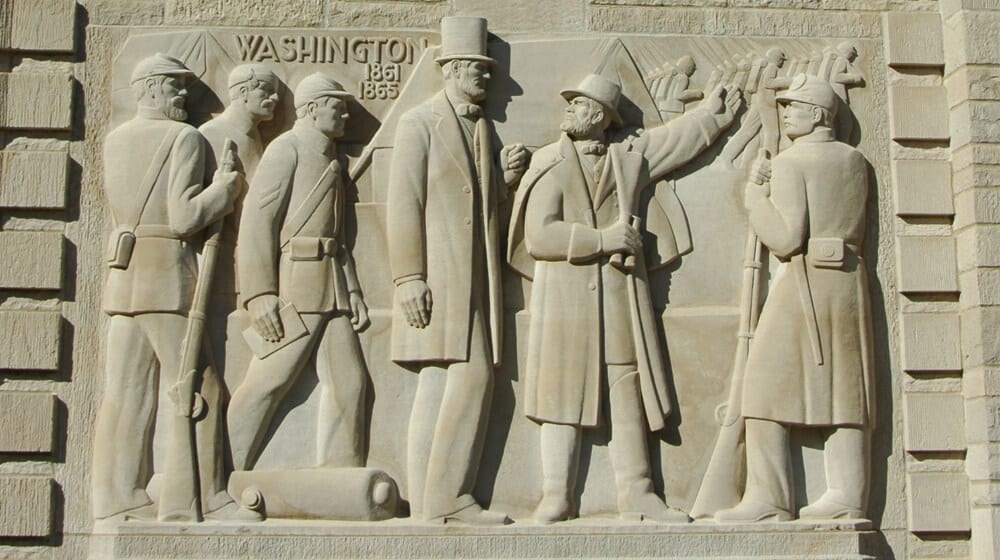Posted on April 17, 2015

This guest post was written by Louis Disinger, a seasonal park ranger at Lincoln Boyhood National Memorial.
The Early Years
Lincoln had a fascination for the law all the way from his youth when he borrowed law books from his neighbor David Turnham in Little Pigeon Community of Spencer County, Indiana.
He would look over agreements and explain them for his friends and family. As a teenager in Indiana he even defended himself, and won, when he was sued by a ferryboat company while operating a rowboat business on the Ohio River. Lincoln would walk miles to Rockport and Boonville, Indiana, to sit in on trials and watch the lawyers battle it out. He loved public speaking and would stand up on a stump reciting speeches or sermons from memory having just heard them one time.
After moving from Indiana to Illinois in 1830, and eventually settling in the little log community of New Salem, he tried his hand at several jobs including flatboat operator, store clerk, postmaster, solider, and even considered being a blacksmith, however, he eventually crossed the threshold from being New Salem’s “jack-of-all-trades” to a focused student of the law.
Learning The Law
He read every law book he could get his hands on including Sir William Blackstone’s “Commentaries on the Laws of England.” He was called into Justice Green’s court to serve as character witness and served on several juries. In addition to the study of law he started a political career serving in the Illinois state legislature. Lincoln spent nearly four years this way, reading and picking up odd jobs here and there to make ends meet while he made his slow climb toward the bar.
Four years was a long time, longer than most students of the law in his day. Lincoln was very intelligent but not quick, and slow to form opinions. He was blessed with excellent memory skills but took a while to absorb and keep information, particularly of the type found in law books. Lincoln once said, “I am slow to learn and slow to forget.”
Lincoln the Lawyer
At some point in 1836 Lincoln felt prepared enough to try formally to take the bar exam. The exam was oral, not written, administered by a lawyer or judge appointed to the task by the court. Also, before being admitted he was required to be certified as “man of good moral character” which was not a trivial matter. It was a serious sizing up of the man by other men who saw this certification as a way to guard their profession’s reputation.
Abraham Lincoln practiced like a pioneer with pioneer ideas of fairness, justice, and of right dealing unencumbered by jargon. Lincoln was able to employ his superior knowledge of the human soul in the courtroom, his masculine common sense, and his ideas about what the law ought to be. He was a single-minded country lawyer, who understood human nature as he studied it in the uncouth countrymen of a prairie frontier. His simplicity, his clearness, his knack for happy illustrations and his earnestness were the complete armor of his legal battles. He was truly – in fact unbelievably – an honest lawyer who separated himself from the legalisms of the courtroom by displaying folksy charm and down-home common sense.